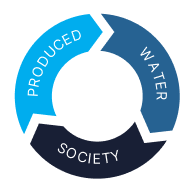PWS awards $15,000 for produced water research
Each of the scholarship winners is concentrating on research that could improve the economics of advanced treatment projects and/or help move the industry closer to beneficial reuse of produced water.
Scholarship Winners
2020 Scholarship Awardees
From 15 applications received from the US and abroad, PWS has chosen Lei Hu and Lin Chen of New Mexico State University and Brett Van Houghton of the Colorado School of Mines as the winners of the Colin Tyrie Scholarship for 2020. Each doctoral student will receive $5,000 to advance their produced water research, as well as an invitation to present at PWS’ Annual Seminar in 2021. WiO spoke to each of the recipients to learn more about their winning proposals and how the scholarship will aid their research.
Lin Chen
Department of Civil Engineering at New Mexico State University
Chen’s research targets the development of a low-cost, energy-efficient solar distillation process to treat produced water. The goal is to produce potable water with a total dissolved solids (TDS) concentration below 500 mg/l and recover rare earth elements such as lanthanum, neodymium and europium. Such a treatment process would be “an environmentally responsible and economically attractive solution to address the challenges of water scarcity, reduce the cost of produced water disposal and produce strategic mineral commodities,” Chen told WiO. He explained that a bench-scale separation and liquid-liquid extraction system would be built as part of the research. Chen expressed gratitude to the PWS scholarship committee for choosing his research proposal and said he looks forward to sharing his findings with other scientists and engineers in the produced water community.
Lei Hu
Department of Civil Engineering at New Mexico State University
Hu’s research aims to develop comprehensive toxicity assays to identify the chemical profiles and potential toxicity impacts posed by produced water. In vitro toxicity will be assessed using freshwater algae (e.g. Scenedesmus obliquus) and fish cell lines (e.g. RTgill-W1 and RTL-W1), while other constituents such as suspended solids, oil, grease, organics and inorganics will be extracted separately to evaluate their contributions to toxicological behaviors of produced water.
“Identifying toxicological behaviors of different constituents in produced water could help pinpoint target contaminants and develop effective treatment processes to achieve species-specific removal,” Hu explained to WiO. “This research is necessary for risk management and to help define the most toxic components and necessary treatment strategies prior to produced water discharge and beneficial reuse.” Hu added that being chosen as a scholarship winner has greatly encouraged him to develop new techniques that could have real-world applications.
Brett Van Houghton
Department of Civil and Environmental Engineering at the Colorado School of Mines
Van Houghton’s research is based on advanced produced water treatment using a membrane bioreactor (MBR) as a pretreatment step ahead of membrane-based desalination in order to develop low-cost, high-efficiency treatment trains that can generate water suitable for beneficial reuse applications.
“This will allow energy companies to save money on treatment while increasing freshwater supplies and reducing the negative environmental impacts associated with unconventional oil & gas operations,” Van Houghton told WiO.
Raw produced water from the DJ Basin has been fed into the MBR, resulting in the removal of more than 90% of dissolved organic carbon while artificially raising TDS concentrations from 27 mg/l to 100 mg/l. The outcome shows the promise of “The PWS scholarship is particularly helpful at a time when research funding is becoming much harder to obtain due to the current national economic situation,” Van Houghton said. He added that the scholarship would allow him to not only continue his MBR research, but also delve into other processes such as membrane and solar distillation, as well as reverse osmosis.
